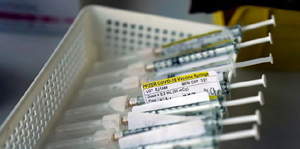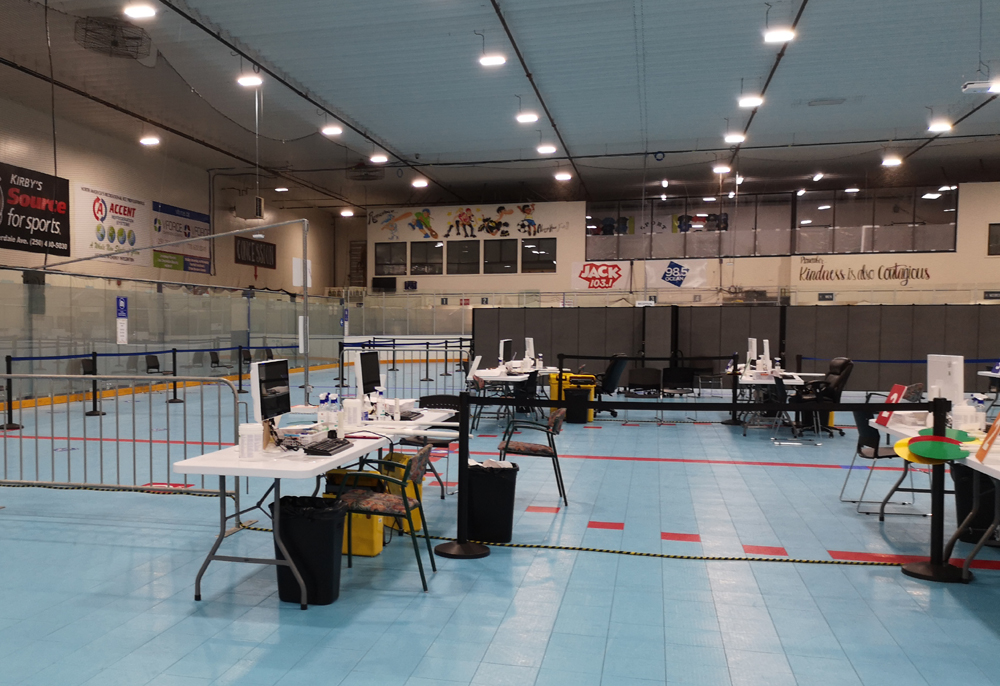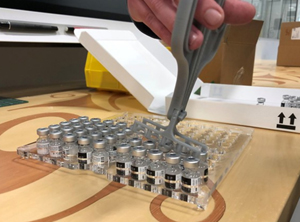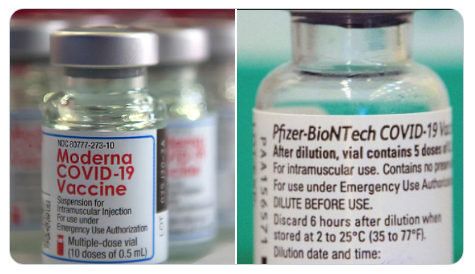
Tuesday June 15, 2021 | VICTORIA, BC
by Mary P Brooke, B.Sc., Editor | Island Social Trends
Ever wondered how those vaccines get from federally-procured shipments, to provinces, to your local clinic or pharmacy and then into your arm?
B.C.’s COVID-19 immunization effort has been the largest in the province’s history. To support this massive undertaking, the Ministry of Health and Provincial Health Services Authority (PHSA) developed a set of standard operating procedures for health authorities with detailed guidance on the safe transportation, storage, and stability parameters of all COVID-19 vaccines.
In BC there are primary and secondary sites for receiving COVID-19 vaccine supply:
- Primary sites: sites receiving vaccine directly from the manufacturer.
- Secondary sites: sites receiving vaccine moved in the custody of the province/health authority.
The BC Centre for Disease Control has established standard operating procedures which outline the shipping, storage and thawing procedures of COVID-19 vaccines.

There is a goal to achieve productive communication between the Immunize BC Operations Centre (IBCOC), health authorities, and individual vaccination sites.
There are 21 COVID-19 immunization clinics on Vancouver Island including four in Greater Victoria: In downtown Victoria at the Victoria Conference Centre, in Esquimalt at Archie Browning Sports Centre, in Langford at the Eagle Ridge Arena, and in Sooke at SEAPARC Leisure Complex.
Frozen or thawed:
Vaccines can arrive at clinics in a frozen or thawed state, says BC Health. Both options can be done safely, and provincial standard operating procedures give detailed guidance on these processes.
For the mRNA-type vaccines (2-dose administration):
- Moderna must be shipped frozen. Once thawed, vials of Moderna can be used without any additional steps.
- Once thawed, Pfizer vials are diluted with a saline solution and then the doses are extracted. Syringes are prepared at clinics. In some situations, a syringe may be prepared in advance and taken to a location to be administered. Standard operating procedures provide guidance on how to safely prepare and transport pre-filled syringes, for example when a home care client is not able to safely attend a mass immunization clinic. Once thawed, Pfizer vaccine should not be re-frozen and should be used within 31 days.
For the viral-vector type vaccines:
- AstraZeneca/COVISHIELD vaccine (2-dose administration) must not be frozen. Ideally, transport of vaccine is conducted only with unpunctured vials in a 2°C to 8°C environment – exceptions may be made in rare instances for pre-loaded syringes. Unopened vials have a shelf life of 6 months when stored in a refrigerator at 2°C to 8°C. Cumulative storage time of an opened vial at room temperature must not exceed 6 hours. Open vials can be re-refrigerated for up to 48 hours, but total cumulative storage time once punctured must not exceed 48 hours.
- Janssen vaccine is authorized for use in Canada (one-dose administration) but the supply was rejected by Health Canada June 14 due to poor batch quality. If and when Janseen is in use in BC, it must not be reconstituted, mixed with other medicinal products, or diluted. Unopened vials can be kept in a 2°C to 8°C environment until their expiry date.
Preventing loss of doses:

The province tracks all incidents where there could be a loss of vaccine – these are called cold chain incidents. These reports are reviewed by public health officials to ensure that there is nothing in the processes that could be improved to prevent loss of vaccine.
Losses to cold chain incidents have been minimal (<1,000) due to the diligence and professionalism of health authority staff. Provincial Health Officer Dr Bonnie Henry has mentioned a few times in her media sessions that great care is taken to try and achieve minimal to no loss of vaccine doses.
Many mass clinics have nurses assigned to prepare syringes and others assigned to administering the vaccine.




